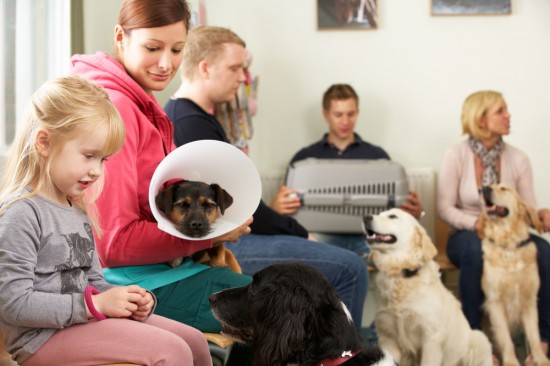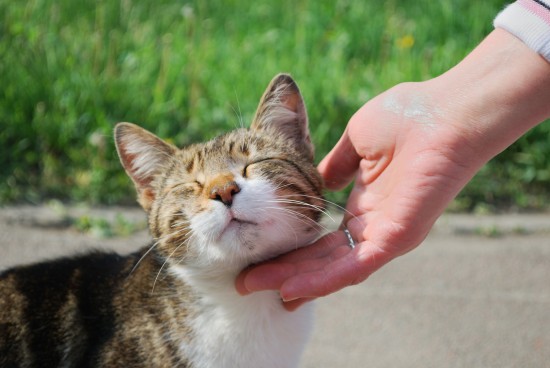

Every owner of a pet large or small should have a good relationship with their animal’s vet, and feel confident in the advice and guidance that their vet is able to provide for them. Whenever you are unsure about something concerning your pet’s health or behaviour, need some advice, and at least once a year for a check up and vaccination boosters, your vet is your go-to person. We trust our vets to take care of our animals, and to help us to do the very best that we can for our pets throughout their lives, and so feeling confident in our vet’s abilities and assured of their compassion is vital for the peace of mind of every pet owner.
Our vets are the people we rely upon to make choices and guide our decisions about our pets when we don’t have the knowledge to do so- our pets’ lives are quite literally in their hands. This is no small trust! So, how can we as pet owners evaluate our own vets, and establish definitively if we are totally happy with them or if perhaps we should be shopping around? Read on to find out more!
In order to be allowed to practice veterinary medicine at all, your vet must be qualified and registered with the RCVS (Royal College of Veterinary Surgeons), or if they come from abroad, have an equivalent qualification from their home country as well as RCVS registration. You can verify the identity and legitimacy of any vet working in the UK with the RCVS if you are in any doubt.
Some veterinary practices also partake in the RCVS ‘accredited practice’ registration scheme, which shows a higher level of voluntary compliance with the highest standards of care and welfare protocols, although you should not automatically rule out a practice that is not a member of the scheme.
Most veterinary practices have at least two vets working from them on an ongoing basis, and many surgeries are significantly larger. If your animal requires any ongoing care or has a condition that cannot be resolved in just one visit, one specific veterinary surgeon should be assigned to deal with the case, and this should generally be the vet that you will see and that will become familiar with your animal and treat them on an ongoing basis. If for any reason your set vet cannot see your pet at one of your appointments, you should be told this in good time, and given the opportunity to re-arrange to see your own vet if you choose. If your pet is in receipt of ongoing care and yet you can’t name the vet in charge of his case or you do not have one particular vet as your point of contact, this is rather bad form and something that you should seek to have corrected- either in your current practice or by moving on to another surgery.
When you take your pet to the vets, does the surgery smell and appear clean, notwithstanding any accidents or spillages that have clearly just happened? Whether in the waiting area or in the consultation room, every surface that your pet comes into contact with, from the floor to the scales to the examination table should be clean and tidy and not show evidence of the previous patients that used them. How your vet deals with hygiene and cleanliness when handling your pet is something else to keep a lookout for- do they wash their hands regularly, wear gloves as needed and disinfect things after usage?
It can be hard sometimes for pet owners to see vets handling their pets, as vets and veterinary nurses understandably have to be firm and businesslike in order to get the job done, which often involves trying to do something that the animal is not going to like! But does your vet treat your animal with empathy, consideration and respect? If your vet had to take your pet out of your sight to treat them, would you feel confident in their willingness and ability to care for them appropriately?
When you are in a consult with your vet, how do you feel that they treat you? Are they easy to talk to with an open, inviting manner, and do they take the time to explain everything to you thoroughly and in detail, and answer any questions you might have? Sometimes the very best vets are not the best communicators, and if you find your vet hard to talk to, this can be a problem! It is important to feel that your vet listens to all of your concerns and actually addresses them rather than simply telling you what they think is best or what they need you to do. Also, how does your vet respond if you need to contact them outside of consultations? Sometimes, you may need a little extra advice, or to have your vet clarify something over the phone for you. Understandably, it is not appropriate to phone every day wishing to speak to the vet for spurious reasons or to avoid a consult fee, but if you do have cause to call your vet for advice or to clarify a point made in a consult, are they available to you and happy to take your call?
How you feel about your own vet and if you are confident in having them care for your pet is only half of the story- it is also important that you feel happy and comfortable with the practice itself. This includes the reception staff, nursing staff and any other practice employees that you and your pet will come into contact with. Is it easy to get an appointment, and is reception easy to deal with and happy to help? How do they handle things if appointments are running late? Are you always kept waiting for protracted periods of time, only to feel that your own consultation is rushed through? These things are all important as well.
If you find that your vet just isn’t ticking all of the boxes for you, you are free to move your custom elsewhere- either to another vet within the practice or another practice entirely. It is important to tell your new practice (or vet) that you have a treatment record with the prior surgery or vet, in order for them to obtain your pet’s medical records and assess and continue your pet’s treatment and history.
Before you do this, however, is there anything that you feel could be resolved by talking to your vet or the practice manager directly? While highly emotive and with much higher stakes than most other industries, veterinary surgeries are, at the end of the day, also businesses, and can suffer from the same issues as any other business, including lack of communication and feedback from clients leading them to be unaware of any problems that might be easily rectified.
Consider making an appointment with the practice manager or one of the managing partners for an informal chat if you feel that there are some issues there, but that they could be resolved.
If you are in any way concerned about the treatment you or your pet has received from your practice, or feel that something is fundamentally wrong within the surgery, contact the RCVS with your concerns in order for them to investigate.
 Golden Retrievers And Obesity Issues
Golden Retrievers
Golden Retrievers And Obesity Issues
Golden Retrievers
 A Brief History Of Mans Relationship With Dogs
A Brief History O
A Brief History Of Mans Relationship With Dogs
A Brief History O
 Four Essential Tips To Keep Your Pet Healthy And In Tip Top Shape
Four Essential Tips To Keep Your Pet Healthy And In Tip To
Four Essential Tips To Keep Your Pet Healthy And In Tip Top Shape
Four Essential Tips To Keep Your Pet Healthy And In Tip To
 How To Tell If Your Cat Is In Heat
How To Tell If Yo
How To Tell If Your Cat Is In Heat
How To Tell If Yo
 Socialising Your Kitten Or Young Cat
Socialising Your
Socialising Your Kitten Or Young Cat
Socialising Your
Copyright © 2005-2016 Pet Information All Rights Reserved
Contact us: www162date@outlook.com